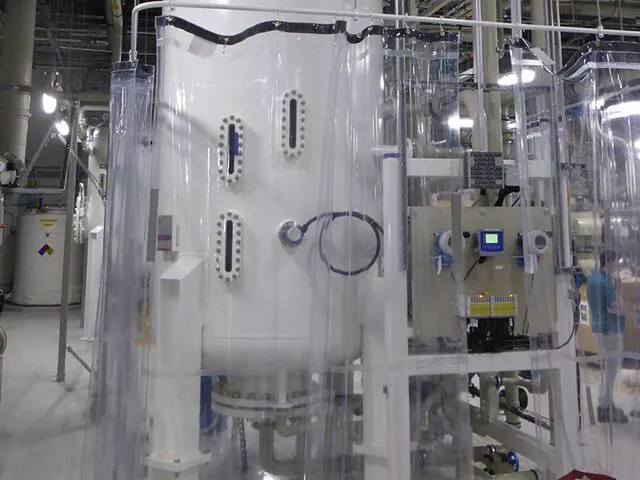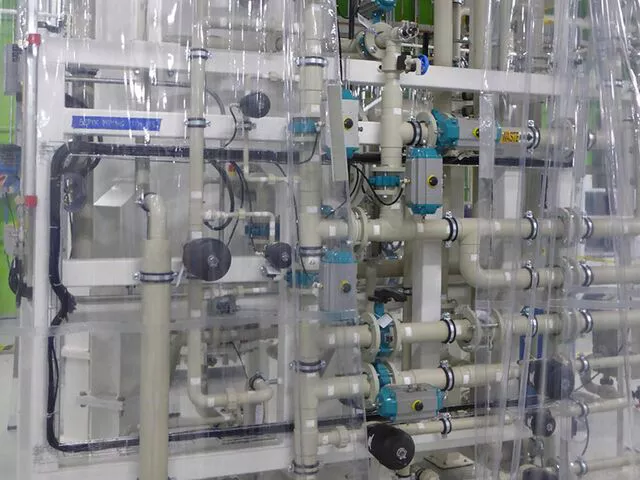
SepIX™
SepIX is used to regenerate mixed bed ion exchange resins. The system is typically used on Ultrapure water (UPW) plants that have multiple large service vessels and a central resin regeneration facility.
The SepIX system can be used in a simple, single vessel design that achieves the same high level of water quality typically produced through a multiple vessel arrangement.
External resin regeneration is key to good quality water production, ensuring chemicals do not enter the process stream during resin regeneration. SepIX is a simple and cost-effective mixed bed external regeneration technology that provides flexible and efficient resin regeneration.
SepIX is typically used where the ion exchange resins are of fixed ratio and volume and where high quality water is required. The SepIX system also removes suspended solids that have been trapped in the resin during service.
External regeneration of resins has the advantage of very low cross-contamination of the ion exchange resins. By regenerating the resin externally, the physical separation of the operating and chemical handling systems eliminates the risk of chemicals entering the UPW circuit. One central external regeneration unit can serve several mixed bed vessels.
SepIX offers a range of benefits, such as:
- Consistently high purity water.
- Reduced risk of chemicals contaminating product water.
- Robust proven design.
- Fully automated operation.
- Single vessel regeneration system that reduces costs.
- Isolation of the intermediate cross-contaminated resin layer.
- Reduced rinsing time due to high regeneration level.
- Effective resin cleaning to remove solids trapped in the resin bed.
- Flexible skidded designs.
- Compact footprint.
- Retrofitting option for existing plants.

The SepIX module consists of a regeneration vessel along with the associated pipe work, valves, controls and instrumentation. Resin from the mixed bed service vessel is transferred, using water, to the SepIX regeneration vessel. An upward flow of water separates the resins with the cation resin accumulating at the base of the vessel and the anion resin migrating above. The cation resin at the base is then regenerated with acid and the anion resin with caustic, before both resins are rinsed out (conductivity control).
Once rinsing is complete, the top part of the anion resin is transferred to the operation column and finally the bottom part of the cation resin is transferred, leaving the intermediate zone (cross-contaminated resp. less regenerated resin) in the separation column. The highly regenerated resins transferred back to the working column are finally mixed and rinsed out rapidly, before being available as UPW water.

